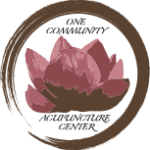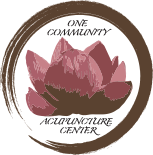
Aches, pains, fatigue, constipation, skin tags, stress, anxiety, colds, bad breath, sleep apnea, muscle soreness, etc. The list of the everyday ailments many people face is endless. And the medical profession is cashing in on all of it. Why? Because we’re programmed to believe our family doctor has a pill or procedure for everything. But that’s just not true and more importantly, how many pills are you willing to take every single day? Or how many procedures are you willing to undergo? Pills and procedures have side effects, and some can be quite harmful.
Many of the pharmaceuticals we’re now familiar with are derived from naturally-occurring substances. For instance, aspirin was originally derived from the bark of the willow tree and written about by ancient Egyptians. Now, most of the “cures” we use daily are man made in a factory somewhere, using chemicals that tend to be toxic to our bodies when used long term. But there are always alternatives.
Here are some everyday ailments and the alternative/uncommon cures that have been documented over the past few decades.
- Muscle pain and soreness – This common affliction can be treated using cherries or cherry juice. A recent study at the University of Vermont showed drinking 12 ounces of cherry juice twice daily led to faster muscle pain relief. This is because cherries contain inflammation-fighting antioxidants that help ease muscle achiness. The juice also has a positive side effect of helping insomnia sufferers fall asleep more quickly.
- Sleep apnea – According to the National Sleep Foundation, this ailment affects more than 18 million American adults. Sleep apnea is a disorder caused by flabby throat muscles and tends to be exacerbated by those carrying extra weight. A recent study published in the British Medical Journal listed a surprising way to decrease sleep apnea….blowing on a didgeridoo. Yup. Those long wooden trumpets used by the aborigines of Australia can actually help ward off sleep apnea by strengthening the muscles and tissues in the throat and mouth. When these muscles are strengthened, there is less chance of the tongue obstructing the airway. Obviously, this one takes some time to see results, as the muscles and tissues have to build up over several months.
- Skin tags – These common skin growths that stick out from the surface of the skin can be large or small, flat or rounded and affect nearly three million United States citizens each year. While these little annoyances can be removed by a doctor, there is no need. Apple cider vinegar works well at removing these unsightly blemishes. By simply soaking a cotton ball in apple cider vinegar and then covering the skin tag with the cotton ball and a bandage a couple of times per day, the tag will eventually dry up and fall off.
There are many different approaches to treating everyday problems and afflictions, there are even books written about the subject. While many of these “home remedies” are available for anybody to try, it is recommended to do research before taking the leap. You might be surprised how easy it is to “cure” yourself using uncommon and unconventional methods.
3 Steps to Restful Sleep
Getting enough truly restful sleep is one of the most biggest factors in staying healthy and balanced, mentally and physically. Actually sleeping enough is much easier said than done for a lot of people, though. Our busy lives can prevent us from placing a premium on sleep, and anxiety and a restless mind are commonly linked to poor sleep as well as sleep apnea.
These three suggestions for getting better sleep draw from yogic philosophy and the traditional Chinese medicine practice of acupressure. Each step is a way to calm the mind, slow down the thoughts and foster a more intentional transition to sleep at the end of each day.
- Legs up the wall pose.
This is a very simple, restorative yoga pose that can be done anywhere you have a blank wall space. To get into the pose, sit down on the floor with one hip as close to the wall as possible. From there, lie down on your back and swing your legs above your hips, so they are supported vertically by the wall and your head is away from the wall, facing the center of the room.
Stay in this pose for as long as feels supportive, anywhere from one to 15 minutes. While you’re here, try to breathe deeply and relax into the posture. Laying with your feet above your head eases the effects of gravity on tired muscles and joints, can help lower blood pressure by increasing the flow of blood toward the heart, and signals to your body that it’s okay to fully relax. Your body also will digest all the food in your system in this position, which can also support you in getting more restful sleep.
- Equal part breath
Equal part breath, also known as sama vritti pranayama, is a simple, calming breath practice that you will feel the effects of even if you do it for just two minutes before bed.
Sit in a comfortable position where your spine is straight above your hips. It can be helpful to prop your hips up on a blanket or pillow in this pose. You can rest your hands in your lap or anywhere that feels comfortable. Start to inhale for a count of four and then exhale for a count of four. Repeat this a few times, inhaling and exhaling for the same length of time. Then, increase the breath to a count of five. After a few rounds, you can increase to a count of six. Once you have reached a length that feels both deeper than how you normally breathe, but also sustainable, maintain that breath for as long as you want.
- Spirit Gate acupressure point
This acupressure point is located on the inside of your wrist, in the crease directly below your pinky finger. This point is often used to alleviate stress, over-excitement, anxiety or cold-sweats, all of which can contribute to insomnia or sleep apnea.
Apply mild pressure to the point on your right wrist for one minute and then switch to the left. You can do this before bed, lying in bed before you fall asleep or in the middle of the night to support yourself in falling back to sleep.












